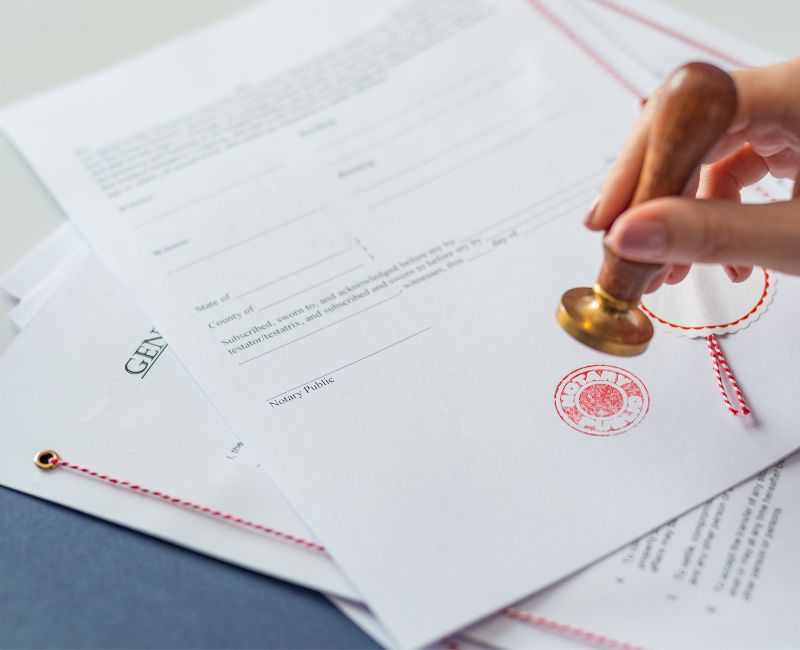In today’s interconnected world, the need for document authentication is a common occurrence. Whether you are pursuing higher education abroad, conducting international business, or dealing with legal matters overseas, the validation of documents is of paramount importance. In the state of Florida, as well as throughout the United States, apostilles play a pivotal role in ensuring the validity of documents in foreign countries. This is where Florida Apostilles can help.
This article aims to provide an in-depth understanding of the practical implications of Florida apostilles, covering what they are, why they are essential, and a step-by-step guide on how to obtain them.
Contents
- 1 What Is an Apostille?
- 2 Why Is It Important to Use Florida Apostilles?
- 3 Practical Implications
- 4 Step-by-Step Guide to Obtaining a Florida Apostille
- 5 Step 1: Determine Document Eligibility
- 6 Step 2: Notarization
- 7 Step 3: Contact the Secretary of State’s Office
- 8 Step 4: Complete the Application
- 9 Step 5: Submit Your Documents
- 10 Step 6: Verification and Issuance
- 11 Step 7: Receive Your Apostille Document
- 12 Step 8: Use the Certified Document Abroad
- 13 Conclusion
What Is an Apostille?
It is a certificate that verifies the authenticity of a public document for use in foreign countries that are parties to the Hague Apostille Convention of 1961. This international convention simplified the process of authenticating documents across borders by establishing a standardized certification known as an international authentication certificate.
It’s important to note that it does not validate the content of a document; rather, it validates the seal and signature of the issuing authority.
 Why Is It Important to Use Florida Apostilles?
Why Is It Important to Use Florida Apostilles?
It serves several vital purposes, making them indispensable for anyone involved in international affairs:
1. Document Validity: Foreign governments often require documents to be authenticated to ensure their legitimacy. Without it, your documents may not be recognized in another country, potentially causing delays or even the rejection of your application or transaction.
2. Legal Compliance: When you are engaged in legal matters abroad, such as adoptions, immigration, or estate transactions, it can be essential to meet the legal requirements of the foreign jurisdiction. It ensures that your documents are legally binding and accepted by foreign courts and authorities.
3. Academic and Professional Credentials: If you are planning to study or work overseas, you may need to present authenticated educational certificates, diplomas, or professional licenses to gain admission or employment. These documents validate your qualifications and credentials in a foreign country.
4. Business Transactions: International business transactions often require the exchange of documents such as business licenses, contracts, or powers of attorney. To validate your company and streamline international business transactions, it is essential to obtain the necessary certification on these documents.
Practical Implications
Florida, like all U.S. states, adheres to the Hague Apostille Convention. This means that it is possible to obtain authentication certificates for various types of documents. Here are some practical implications:
1. Eligible Documents: It can be issued for a wide range of documents, including but not limited to birth certificates, marriage certificates, divorce decrees, notarized documents, court documents, and more. It’s essential to note that certain federal documents, such as FBI background checks, require federal certification rather than state-level certification.
2. Process and Authorities: The Secretary of State’s office in Florida is responsible for issuing this. To obtain it, you must submit your documents to the Secretary of State, either in person or by mail. The office will verify the authenticity of the document, attach the certificate, and return the document to you.
3. Notarization: Many documents require notarization before they can receive the required certification. It’s crucial to ensure that your documents are notarized correctly to avoid delays in the process. A notary public is a public officer appointed by the state to witness the signing of important documents and administer oaths. Notarization essentially adds an additional layer of authenticity to your documents.
4. Timeliness: The time it takes to obtain it can vary based on factors such as the volume of requests and the complexity of the documents. It’s advisable to plan ahead and start the process well in advance of your intended use of the document. Delays in obtaining can affect your travel plans, legal proceedings, or business transactions.
5. Cost: Florida charges a fee for issuing it. The fee may vary depending on the type of document and the service level you select. It’s essential to check the current fee schedule with the Secretary of State’s office and be prepared to cover these costs as part of the document authentication process.
 Step-by-Step Guide to Obtaining a Florida Apostille
Step-by-Step Guide to Obtaining a Florida Apostille
Now that we’ve explored the practical implications, let’s delve into the step-by-step process of obtaining one:
Step 1: Determine Document Eligibility
Before beginning the process, it’s crucial to confirm that your document is eligible for authentication. Generally, public documents such as birth certificates, marriage certificates, educational diplomas, and legal documents .
However, it’s advisable to check with the Secretary of State’s office in Florida to ensure your specific document qualifies.
Step 2: Notarization
Many documents require notarization before they can be authenticated. If your document needs notarization, ensure it is signed in the presence of a licensed notary public. The notary will verify your identity and witness your signature, adding an official seal and signature to the document.
Step 3: Contact the Secretary of State’s Office
Once your document is notarized (if necessary), contact the Florida Secretary of State’s office to obtain the necessary forms and instructions for obtaining legalization. You can do this by visiting their website or contacting them via phone or email.
Step 4: Complete the Application
Fill out the application form provided by the Secretary of State’s office. Ensure that all the information is accurate and complete to avoid delays in processing. The application may require details such as your contact information, the type of document, and any additional information related to the document’s origin.
Step 5: Submit Your Documents
Submit your completed application, along with the original document that requires certification, to the Secretary of State’s office.
You can do this in person or by mail, depending on your preference and convenience. Be sure to include any required fees along with your application.
Step 6: Verification and Issuance
The Secretary of State’s office will review your application and verify the authenticity of the document. This verification process is essential to ensure that the document meets the requirements. Once approved, the office will attach it to your document.
Step 7: Receive Your Apostille Document
After it is affixed to your document, the Secretary of State’s office will return it to you. You can choose to have the document mailed back to you or pick it up in person, depending on your preference.
Step 8: Use the Certified Document Abroad
With it attached, your document is now ready for use abroad. Present it to the relevant foreign authorities or institutions as needed. It serves as proof of the document’s authenticity and validity, making it legally acceptable in countries that are parties to the Hague Apostille Convention.
Conclusion
Understanding the practical implications of Florida apostilles is crucial when navigating international transactions, legal matters, education, or business opportunities abroad.
These serve as a vital tool for ensuring the validity of your documents in foreign countries, allowing you to conduct your affairs smoothly and efficiently.
By familiarizing yourself with the process and requirements for obtaining it and following the step-by-step guide outlined in this article, you can streamline your international endeavors and avoid potential complications related to document authentication.
Whether you are starting on a new educational journey, expanding your business internationally, or dealing with legal matters across borders, Florida apostilles are your key to ensuring that your documents are recognized and accepted abroad.